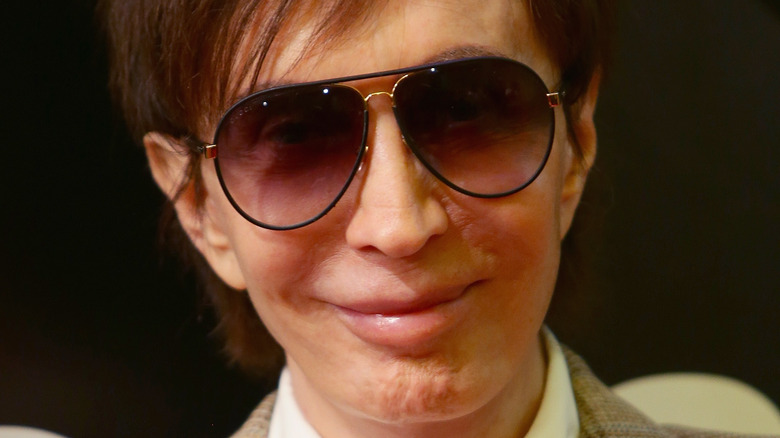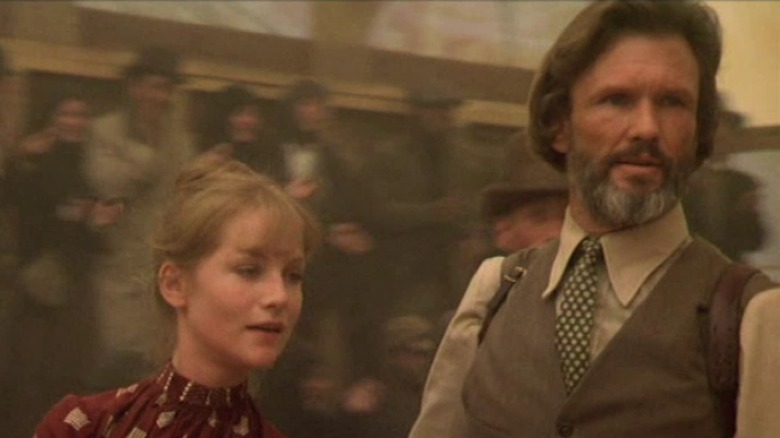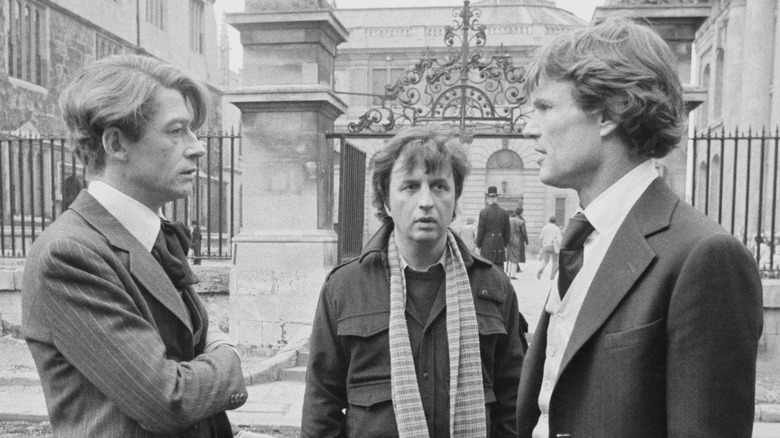The Failure Of This Film Ended The New Hollywood Era Of Cinema
The New Hollywood era represents one of the most important periods in cinema history, as it marked a revitalization of the film industry that was largely brought about by young, ambitious filmmakers who pushed the boundaries of how movies were traditionally made. According to StudioBinder, the movement lasted from the mid-1960s to the early-1980s, and was typified by a generation of directors who brought daring new visions to their work, resulting in films that pushed the medium into new territory. Among this group of directors were George Lucas, Steven Spielberg, Martin Scorsese, Francis Ford Coppola, and Michael Cimino (above).
Cimino is a fascinating player in the New Hollywood movement. He first established himself as a screenwriter (per IMDb) when he wrote the script for 1973's "Dirty Harry" sequel, "Magnum Force," which he followed by writing and directing another Clint Eastwood vehicle, 1974's "Thunderbolt and Lightfoot," a solid hit that year (per Box Office Mojo). However, it wasn't until 1978's highly-acclaimed "The Deer Hunter" that Cimino became a big name in the film industry. The film was a commercial success (also per Box Office Mojo) and won five Oscars, including two for Cimino for Best Picture and Best Director (per IMDb). Cimino seemed poised to become one of the biggest directors to come out of the New Hollywood era, but it was his next film that would ultimately result in the movement's end.
The Hellish Production of Heaven's Gate
As described in The Ringer, the critical and box office success of "The Deer Hunter" resulted in Michael Cimino essentially being given carte blanche to do whatever he wanted for his next project, titled "Heaven's Gate." The film was a grand Western that was set during the Johnson County War in the late 1800s, chronicling the clash between European immigrants and greedy land barons. But before cameras even started filming, "Heaven's Gate" had producers worried as Cimino refused to cast any A-listers for the film. That was the least of its problems.
What could've become a moving epic period piece, however, was marred by Cimino's megalomania and arrogance, which saw him indulging in the sort of whims that would make even the most permissive studio executive nervous. According to The Ringer, lavish sets were built, taken down, then rebuilt to Cimino's ever-changing vision; countless takes were shot, tiring out cast and crew; and the film constantly went over budget and fell behind schedule, so much so that actor John Hurt had enough time to leave production and shoot David Lynch's "The Elephant Man," then return to the set of "Heaven's Gate" to shoot his scenes in the film. Cimino even refused to let producers see footage of the film and rejected their notes. While Cimino may have thought that he was merely sticking to his creative guns, he was also signing the death warrant of the most important movement in Hollywood.
The fall of the New Hollywood era
"Heaven's Gate" was supposed to be released in 1979, but because it constantly fell behind schedule, it didn't arrive in theaters until a year after its initial planned date. The film was a huge commercial flop; on a purported budget of $44 million, it made less than $4 million (per Rotten Tomatoes). It was also a miss with critics, who praised the film for its beautiful imagery while deriding pretty much everything else. Hurting matters even more were the stories of Cimino's extreme demands throughout the lengthy and costly production. Length was also an issue; "Heaven's Gate" ran over three-and-a-half hours long, making the mediocre movie seem all the worse.
While the period of the late 1970s had its share of New Hollywood directors bombing with audiences (e.g. Steven Spielberg's "1941," Martin Scorsese's "New York, New York"), it was "Heaven's Gate" — the biggest bomb of all — that proved that the major studios were getting too permissive about letting talented young directors take complete control of their films. As detailed in The Ringer, the studios learned their lesson and took back the creative control they'd handed over to the budding auteurs. The 1980s, while still birthing some beloved films from New Hollywood filmmakers, was a time largely marked by glossy, audience-friendly movies that took fewer risks but were more likely to turn a profit, effectively ending the New Hollywood era of filmmaking.


